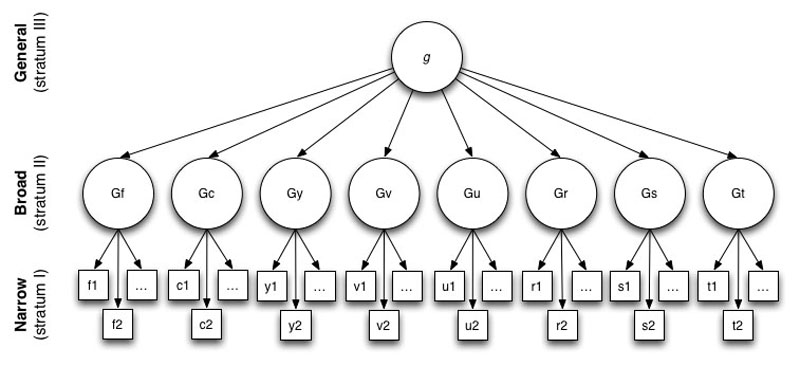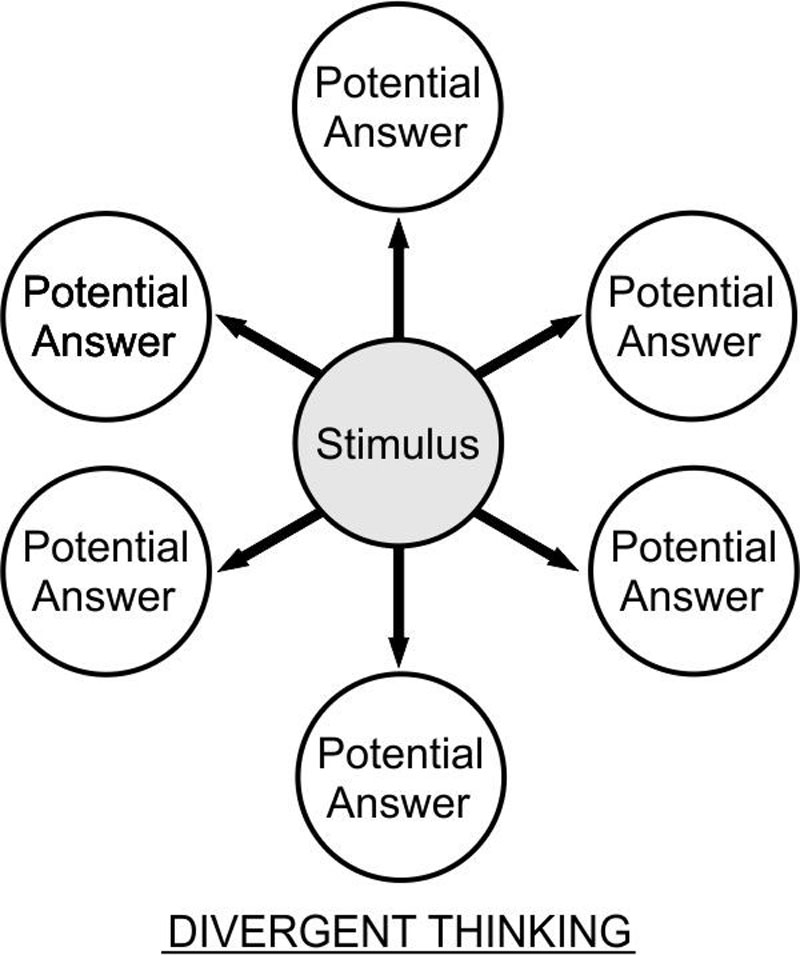Intelligence
- Abstract thinking is the ability to understand hypothetical concepts or derive general rules from subordinate concepts.
- The g factor is a construct developed in psychometric investigations of cognitive abilities. It is a variable summarizing positive correlations among different cognitive tasks. The terms IQ or general intelligence are often used interchangeably to refer to this common core.
- Fluid intelligence is the capacity to think logically and solve problems in novel situations, independent of acquired knowledge.
- Crystallized intelligence is the ability to use skills, knowledge, and experience. It does not equate to memory, but it does rely on accessing information from long-term memory.
- The Theory of Multiple Intelligences is a theory of intelligence that differentiates it into specific (primarily sensory) modalities, rather than seeing intelligence as dominated by a single general ability.
- The triarchic model of intelligence proposed by Robert Sternberg categorizes intelligence into three parts: analytical, creative and practical.
- Divergent thinking is a thought process or method used to generate creative ideas by exploring many possible solutions.
- Convergent thinking generally means following a particular set of logical steps to arrive at one solution, reflecting the ability to give the correct answer to standard questions that do not require significant creativity.
- Emotional intelligence is a term used to describe the ability of an individual to recognize their own and other people's emotions, to discriminate between different feelings and label them appropriately, and to use emotional information to guide thinking and behavior.
- Wisdom is the ability to think and act using knowledge, experience, understanding, common sense, and insight.

An illustration of John B. Carroll’s three stratum theory, an influential contemporary model of cognitive abilities. The broad abilities recognized by the model are fluid intelligence (Gf), crystallized intelligence (Gc), general memory and learning (Gy), broad visual perception (Gv), broad auditory perception (Gu), broad retrieval ability (Gr), broad cognitive speediness (Gs), and processing speed (Gt). Carroll regarded the broad abilities as different 'flavors' of g.
